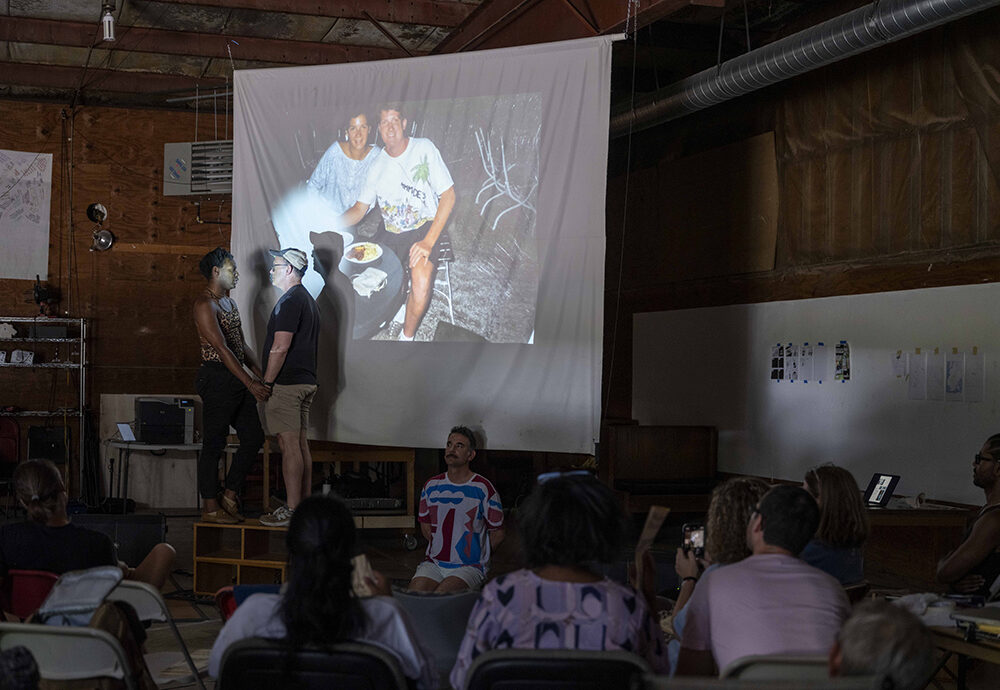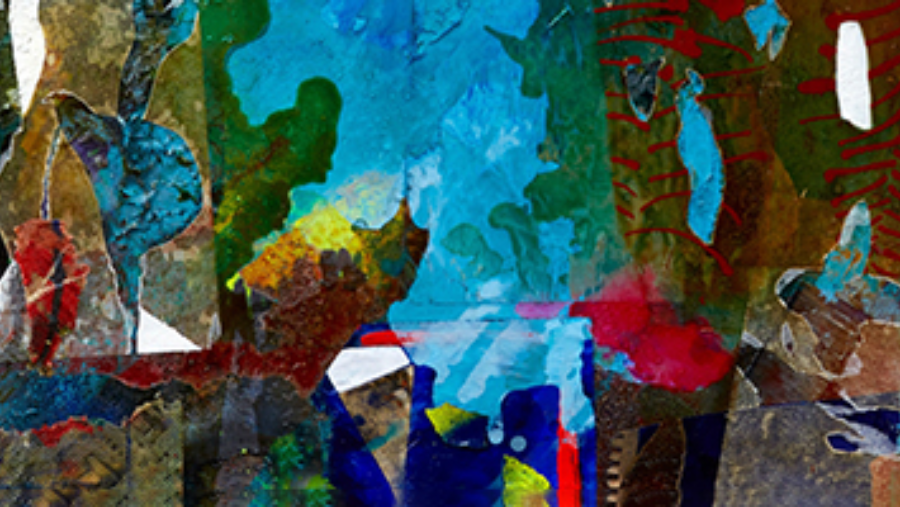Symposium
Location
Abby and Howard Milstein Auditorium
Milstein Hall
Overview
On September 27 and 28, 2022, the Cornell Mui Ho Center for Cities will host urban leaders, scholars, activists, artists, and practitioners from around the world to mark the center’s launch.
The symposium will address two pressing and interconnected challenges faced by cities: rising inequality and climate change. Over two days, we will explore the role of research in supporting urban transformation to tackle those challenges. Three panels and speakers, each with very different perspectives, will address this topic followed by interactive sessions.
The first panel features directors of urban research centers from around the world. We will discuss the value that these centers provide, key opportunities to support positive change on the ground, and barriers to overcome. We will also ask where our research attention should be now and over the next five to ten years, and how these centers can work more effectively together.
The second panel invites innovative city leaders from different geographies to discuss the “wickedest of problems” facing their respective cities. What have they found that works and why? How can researchers contribute to transforming their cities, and what new research can have a positive impact? What would a meaningful partnership with a university look like?
The third panel is for creative practitioners and includes artists, architects, and activists. Panelists will be asked to describe their dream future action or creative project, without limits. Is there research that could inform this future work? What does meaningful engagement with a university partner look like?
During the symposium, AAP faculty will engage with speakers through interactive sessions and have an opportunity to present the work of their research labs.
Schedule: September 27
3:30–4 p.m. | Welcome
- J. Meejin Yoon, Gale and Ira Drukier Dean, College of Architecture, Art, and Planning
- Victoria A. Beard, Inaugural Director, Cornell Mui Ho Center for Cities
4–5:30 p.m. | Panel 1: Engaged Research for Urban Transformation
Moderator: Sophie Oldfield, Professor and Chair of the Department of City and Regional Planning
- Luís M. A. Bettencourt, Mansueto Institute for Urban Innovation, University of Chicago
- Edgar Pieterse, African Center for Cities, University of Cape Town
- Aromar Revi, Indian Institute for Human Settlements
- , City College of New York
- Sarah Williams, Norman B. Leventhal Center for Advanced Urbanism, MIT
Prompt: What is the value added by centers for cities? What are key opportunities and obstacles for positive change in our knowledge of cities and on the ground? Where should our attention be now; in the next five years; the next ten years? How can this landscape of centers work more effectively together?
5:30–6:30 p.m. | Reception and Photo Exhibit, Milstein Dome
Schedule: September 28
8–9:45 a.m. | Breakfast and Pecha Kucha, Center for Cities Labs, Milstein Dome
Moderator: Neema Kudva, Professor and Senior Associate Dean for Academic Affairs
10–11:30 a.m. | Panel 2: City Leaders and Political Visions for the Future
Presentation of the results from the first Global Survey of City Leaders
- Victoria A. Beard, Inaugural Director, Cornell Mui Ho Center for Cities
Panel
Moderator: Sara Bronin, Professor and Director, Legal Constructs Lab
- Mayor Manuel de Araújo, Quelimane, Mozambique
- Mayor Peter Bročka, Trnava, Slovakia
- Mayor Sam Liccardo, San José, California
- Mayor Quinton Lucas, Kansas City, Missouri
- Mayor Erion Veliaj, Tirana, Albania
Prompt: What are the “wickedest of problems” facing your city? What have you found that works and why? What would a meaningful partnership with a university look like? Is there research that could inform positive change or support urban transformation in your city?
11:30 a.m.–12 p.m. | Q & A Session
12–1 p.m. | Lunch, Milstein Dome
1–2:30 p.m. | Interactive Session, World Café, Small Group Discussions
Facilitators:
- Paul Ramírez Jonas, Professor and Chair of the Department of Art
- Caroline O’Donnell, Professor and Chair of the Department of Architecture
- Sophie Oldfield, Professor and Chair of the Department of City and Regional Planning
2:30–3 p.m. | Coffee Break
3–4:30 p.m. | Panel 3: Creative Urban Practitioners and Concrete Changes on the Ground
Moderator: Jen de los Reyes, Associate Professor and Associate Dean for Diversity and Equity
- Gary Bates, Architect, Gensler Visiting Critic
- Mary Mattingly, Visual Artist
- Johnny Miller, Photographer, Senior Atlantic Fellow
- Joe Muturi, President, Slum Dwellers International
- Emmanuel Pratt, Cofounder and Executive Director, Sweet Water Foundation
Prompt: What is your dream action or project? Is there research that could inform your dream project? What does meaningful engagement with a university partner look like?
4:30–5 p.m. | Q & A Session
5–5:30 p.m. | Closing Talk: Cities — Building Resilience Through Design
- Miho Mazereeuw, Director of the Urban Risk Lab, MIT
Speakers
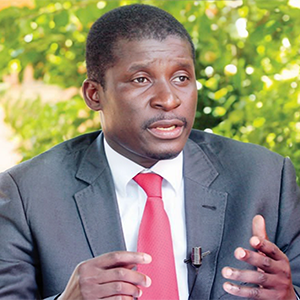
Manuel de Araújo, Mayor, Quelimane, Mozambique
Manuel A. Alculete Lopes de Araújo has been the Mayor of Quelimane, Mozambique’s fourth-largest city, since 2011, and is active in ICLEI–Local Governments for Sustainability, serving as Vice-Chair of the ICLEI Africa Committee and as the member in charge of resilience on ICLEI’s Global Executive Committee. As mayor, he has prioritized food security, building the resilience of urban farms and promoting composting and biogas production. He has also championed cycling and active mobility. Quelimane is a member of ICLEI’s EcoMobility Alliance, is developing an African network of cities for the Transformative Urban Mobility Initiative, and is part of the Transport Decarbonisation Alliance.
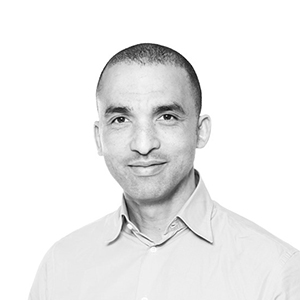
Gary Bates, Architect, Gensler Visiting Critic
Gary Bates cofounded SPACEGROUP in Oslo, Norway, in 1999. The architecture and strategic planning firm first made its mark with complex urban projects including the Prostneset Ferry Terminal, Vestbanen National Library, Filipstad Masterplan, and the Louisville 25-year Vision Plan. SPACEGROUP’s research arm, DEEP, manages the collective intelligence in the discourse between development, planning, politics, and architecture. Bates has also worked to explore alternative architectural business models through the start-up environment, including Romly and North on North. In parallel to his practice, he teaches and lectures at several universities. He is a Gensler Visiting Critic in the Department of Architecture for the fall of 2022.
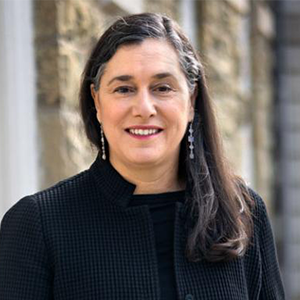
Victoria A. Beard, Director, Mui Ho Center for Cities
Victoria Beard is the inaugural Director of the Cornell Mui Ho Center for Cities and a Professor of City and Regional Planning. Her research and teaching focus on how planners around the world address urban inequality and poverty, and on the challenges of providing basic services in cities in the Global South, particularly water and sanitation, as well as the broader processes that create and sustain citywide transformation. From 2015 to 2017, she served as director of research for the Ross Center for Cities at the World Resources Institute and led the production of the World Resources Report: Towards a More Equal City. She has also worked for the World Bank, the Asian Development Bank, AusAID, Mercy Corps, the Research Triangle Institute, and RAND.
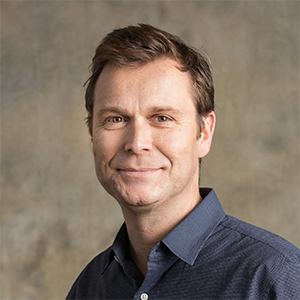
Luís M. A. Bettencourt, Director, Mansueto Institute for Urban Innovation, University of Chicago
Luís M. A. Bettencourt is the Inaugural Director of the Mansueto Institute for Urban Innovation at the University of Chicago and a Professor of Ecology and Evolution, as well as an External Professor of Complex Systems at the Santa Fe Institute. He conducts interdisciplinary research on complex adaptive systems in biology and society and leads research and education programs in urban science and sustainable development. He focuses on the systemic processes and properties that create and sustain cities, taking an interdisciplinary approach using many different forms of evidence and data. The work involves partnerships and collaborations with international networks of researchers, local governments, and non-governmental organizations (NGOs) to understand and systematize urban knowledge and to foster processes of sustainable development.
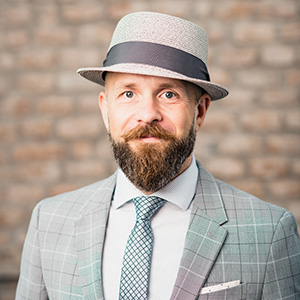
Peter Bročka, Mayor, Trnava, Slovakia
Peter Bročka is the Mayor of Trnava, one of the oldest and most economically important cities in Slovakia. He was elected in 2014. He has a law degree from the University of Trnava and a degree in International Business Law from the Central European University in Budapest. Before studying abroad, he worked at the District and Regional Land Office in Trnava. When he returned from Budapest, he worked at the Ministry of Transport, Construction, and Regional Development of the Slovak Republic, and then as a specialist lawyer at Cargo Slovakia. Having experienced public administration and governance from both sides, Bročka perceives change as necessary and has begun working on activities to change the City of Trnava for the better.
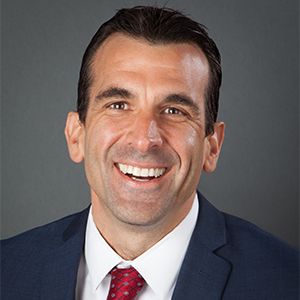
Sam Liccardo, Mayor, San José, CA
As Mayor of San José, California, since 2015, Sam Liccardo has led efforts to fund the construction of thousands of units of affordable housing, launched the nation’s largest community choice clean energy utility, coalesced multi-billion-dollar investments in new transit, and preserved large tracts of green space. As part of his Smart City Vision, San José created the nation’s first Digital Inclusion Fund to provide broadband access, devices, and skills to low-income families. He also championed an agreement with Google for a transformational project, Downtown West, which is investing $200 million in community priorities, including affordable housing and opportunities for youth in underserved neighborhoods. He has also served as chair of the Big City Mayors, a coalition of mayors from California’s 13 largest cities.
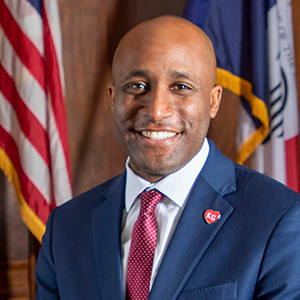
Quinton Lucas, Mayor, Kansas City, MO
Quinton Lucas has been Mayor of Kansas City since 2019. He has prioritized making neighborhoods safer, creating more accessible and affordable housing and public transportation, maintaining efficiency and transparency in governance, and improving basic services. A Kansas City native who has spent most of his life in the urban core, he has sought to develop long-term, sustainable solutions to violent crime, decriminalize poverty, and build police-community trust through accountability measures. In 2022, the U.S. Conference of Mayors recognized him with the Mayors’ Climate Protection Award for the Zero Fare Transit initiative, through which Kansas City was the first major U.S. city to make all public transportation fare-free.
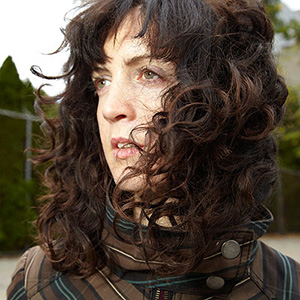
Mary Mattingly, Visual Artist
Mary Mattingly is an interdisciplinary artist based in New York whose work has been exhibited around the world and featured in numerous publications. She founded Swale, an edible landscape on a barge in New York City. Docked at public piers but following waterways, Swale allows anyone to pick free fresh food. Swale instigated and cocreated the “foodway” in Concrete Plant Park, the Bronx, in 2017 — the first time in more than 100 years that people have been allowed to publicly forage in New York City Parks. Mattingly recently launched Public Water with More Art and completed Pull with the Museo Nacional de Bellas Artes de la Habana and the Bronx Museum of the Arts, two spherical ecosystems that were pulled across Havana to Parque Central and the museum.
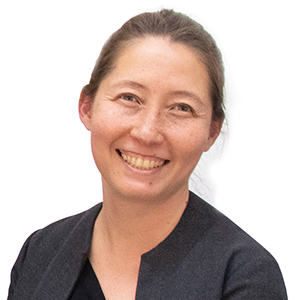
Miho Mazereeuw, Director, Urban Risk Lab, MIT
Miho Mazereeuw is an Associate Professor of Architecture and Urbanism at the Massachusetts Institute of Technology, and Director of MIT’s Urban Risk Lab, which brings together multidisciplinary teams to innovate on technologies, materials, processes, and systems to reduce risk. The Lab develops methods to embed risk reduction and preparedness into the design of regions, cities, and urban spaces. Mazereeuw is currently working in Haiti, India, Japan, and Chile, collaborating with institutions and organizations in the field of disaster reconstruction/prevention, and completing a book on infrastructure design, multifunctional public space, and innovative planning strategies in earthquake-prone regions. Her design work on disaster prevention has been exhibited globally.
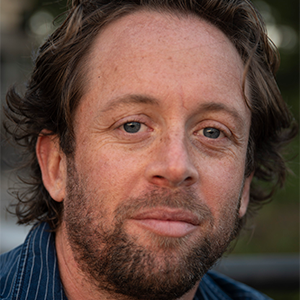
Johnny Miller, Photographer
Johnny Miller is a photographer and storyteller based in Cape Town, South Africa, and the United States interested in exploring inequality, architecture, and urban issues through his work. He helped pioneer “drone journalism” in Africa with his project Unequal Scenes, and continues to explore underserved narratives at the intersection of technology and traditional storytelling techniques. He also cofounded africanDRONE, a pan-African organization committed to using drones for good. Miller is a Senior Atlantic Fellow for Social and Economic Equity at the London School of Economics and a Senior Fellow at Code for Africa.
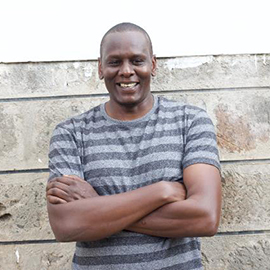
Joe Muturi, President, Slum Dwellers International
Joe Muturi is President of SDI, a network of community-based organizations of the urban poor in 32 countries in Africa, Asia, and Latin America. He is a social activist and leader of Muungano wa Wanavijiji, the national federation of slum dwellers and the largest social movement in Kenya. Muturi has worked extensively on projects that affect urban poor communities in Kenya, engaging with donor agencies and academia to build strong relationships with residents, including in the Mukuru Special Planning Area (SPA) project, one of the largest informal settlement-upgrading projects ever. Muturi has helped communities to build consensus on strategy, budgeting, planning, and implementation of projects, and he has also been a climate change activist and resilience champion.
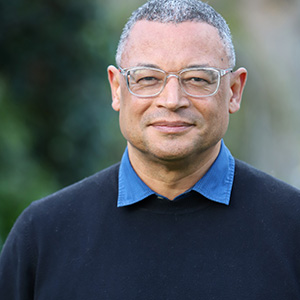
Edgar Pieterse, Director, African Center for Cities, University of Cape Town
Edgar Pieterse is the founding Director of the African Centre for Cities (ACC) at the University of Cape Town and holds the South African Research Chair in Urban Policy. His research and teaching explore urban imaginaries, alternative futures, sustainable urban infrastructure, place-making, public cultures, responsive design, and adaptive governance systems. He writes, curates exhibitions, and convenes difficult conversations about pressing urban problems. His current research is focused on a major exhibition, CompleXities, as well as exploratory work on the tenets of sustainable infrastructure systems in low-income contexts. He also leads the African Mayoral Leadership Initiative and serves on the advisory boards of several urban and scientific institutions.
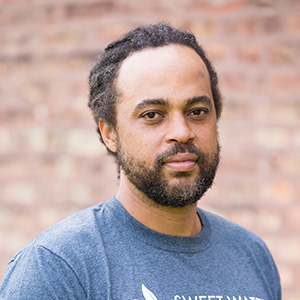
Emmanuel Pratt, Cofounder and Executive Director, Sweet Water Foundation
Emmanuel Pratt is an urban designer creating a model of resident-driven community development in neighborhoods that have suffered the effects of long-term disinvestment. Pratt is cofounder and Executive Director of the Sweet Water Foundation, a nonprofit organization based on Chicago’s South Side that engages local residents in the cultivation and regeneration of social, environmental, and economic resources in their neighborhoods. His holistic approach to community development — integrating agriculture, education, and design — is informing the work of organizations in other cities and demonstrating the power of using ecological systems as a guide for turning neglected urban neighborhoods into places of growth and vitality.
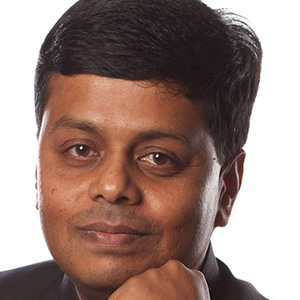
Aromar Revi, Director, Indian Institute for Human Settlements
Aromar Revi is the Director of the Indian Institute for Human Settlements, India’s preeminent institution for the interdisciplinary study of urbanization. He has built IIHS into one of the world’s leading education, research, training, advisory, and implementation-support institutions, focusing on the multi-dimensional challenges and opportunities of sustainable urbanization. Revi is a global practice and thought leader and educator, with more than 35 years of interdisciplinary experience in sustainable development, public policy and governance, human settlements, and global environmental and technological change. He is also Cochair of the UN Sustainable Development Solutions Network, where he helped lead a successful global campaign for an urban Sustainable Development Goal (SDG 11) as part of the UN’s 2030 development agenda.
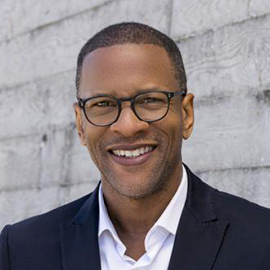
Shawn L. Rickenbacker, Director, J. Max Bond Center for Urban Futures, City College of New York
Shawn L. Rickenbacker is a trained architect, urbanist, and urban data researcher and Associate Professor of Architecture at the City University of New York. He is currently the Director of the J. Max Bond Center for Urban Futures, where he directs the center’s sponsored and partnership research. His work directly confronts the complex urban intersection of spatial equity and the social and economic impacts of place-based policies, programs, and design. He has also served as Senior Research Fellow at the Phyllis M. Taylor Institute for Social Innovation, where he researched artificial intelligence and the future of social urbanism. His research has been featured in major media outlets and exhibited at the Studio Museum of Harlem.
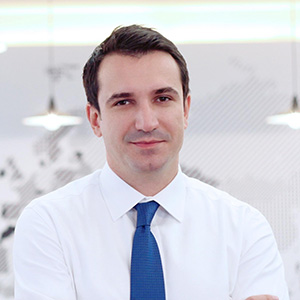
Erion Veliaj, Mayor, Tirana, Albania
Erion Veliaj is the Mayor of Tirana, Albania, elected in June 2015. A native of Tirana, he has prioritized implementing child-friendly policies to transform Tirana into a long-term sustainable city. As part of his vision to give the city back to its citizens, his administration completely renovated Skanderbeg Square, the city’s central square, earning the 2018 European Prize for Urban Public Space. Another major project is the Orbital Forest, which aims to encircle Tirana with a belt of 2 million trees by 2030. In April 2017, his alma mater, Grand Valley State University in Michigan, awarded him an honorary doctorate for his contribution to the improvement of the quality of the public services in Tirana.
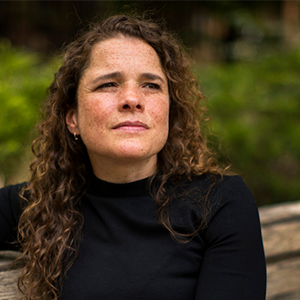
Sarah Williams, Director, Norman B. Leventhal Center for Advanced Urbanism, MIT
Sarah Williams is an Associate Professor of Technology and Urban Planning at the Massachusetts Institute of Technology, where she is also Director of the Civic Data Design Lab and the Leventhal Center for Advanced Urbanism. She combines her training in computation and design to create communication strategies that expose urban policy issues to broad audiences and create civic change. She calls the process Data Action, which is also the name of her recent book published by MIT Press. Williams is cofounder and developer of Envelope.city, a web-based software product that visualizes and allows users to modify zoning in New York City. Her design work has been widely exhibited and has won multiple awards.
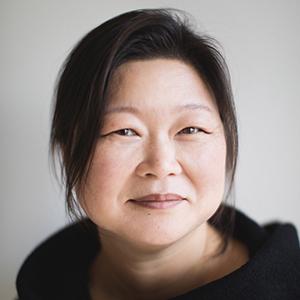
J. Meejin Yoon, Gale and Ira Drukier Dean, College of Architecture, Art, and Planning
J. Meejin Yoon is the Gale and Ira Drukier Dean of the College of Architecture, Art, and Planning at Cornell University and cofounding partner of the widely recognized design studio Höweler+Yoon. She is also founder of the Design Across Scales Lab, a research platform, creative think tank, and design incubator that maps the boundaries of current problems to invent future-oriented design solutions. Her own research examines intersections between architecture, urbanism, technology, and the public realm. Her designs include cultural buildings and public spaces such as the Memorial to Enslaved Laborers at the University of Virginia, the MIT Museum at the Massachusetts Institute of Technology, and the Moongate Bridge in the Shanghai Expo Park. Current projects include the Designing Peace exhibition at the Cooper-Hewitt National Design Museum, the Institute of Democracy at UVA, and the Living Village at the Yale Divinity School.
Moderators
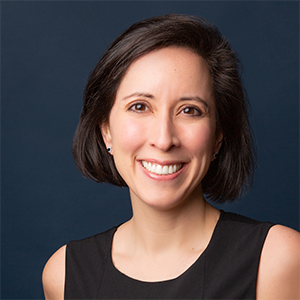
Sara Bronin, Professor, City and Regional Planning
Sara Bronin is a Professor in the Department of City and Regional Planning at Cornell University and Director of the Legal Constructs Lab. A Mexican-American architect and attorney, she conducts interdisciplinary research on property, land use, historic preservation, and energy, focusing on how law and policy can foster more equitable, sustainable, well-designed, and connected places. She was recently nominated to chair the U.S. Advisory Council on Historic Preservation. Her forthcoming book, Key to the City, will explore how zoning rules rule our lives. Through the Legal Constructs Lab, she created the National Zoning Atlas to translate and standardize zoning codes across the country.
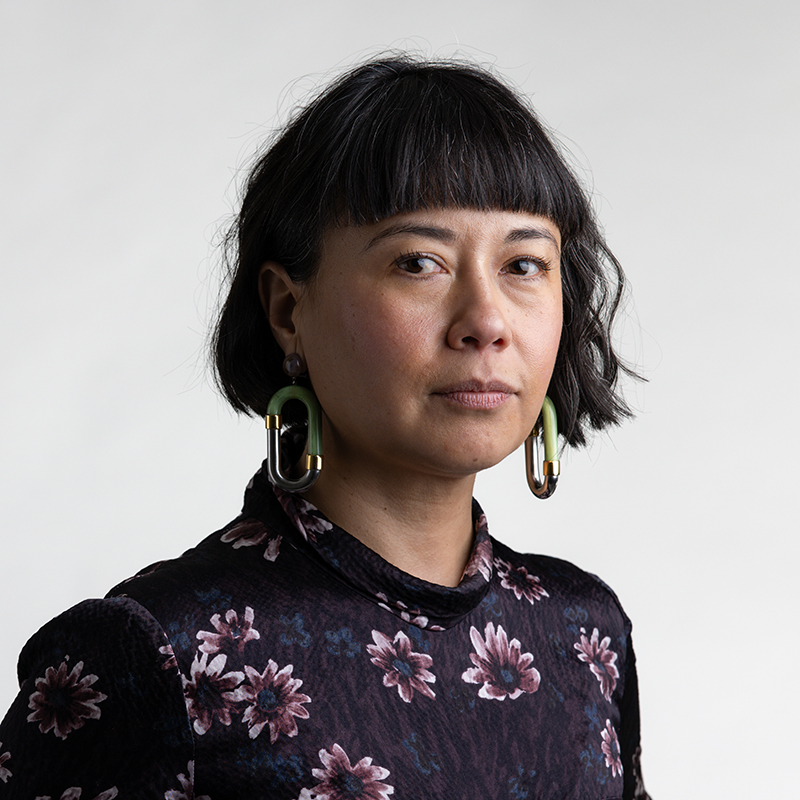
Jen de los Reyes, Associate Professor and Associate Dean for Diversity and Equity
Jen de los Reyes is an educator, writer, and radical community arts organizer. She centers her practice on education, ecologies, and the transformative possibilities of sharing domestic space as a community resource. She is defiantly optimistic and a proponent that our institutions can become tender and vulnerable. At Portland State University from 2008 to 2014, she worked to create the first flexible residency Art and Social Practice M.F.A. program in the United States, while also producing a series of programs at the Portland Art Museum. From 2015 to 2022, she was Associate Director of the School of Art & Art History of the University of Illinois. She also founded and directed Open Engagement, which hosted ten international conferences on socially engaged art between 2007 and 2019.
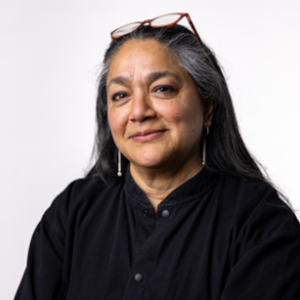
Neema Kudva, Professor, City and Regional Planning, and Senior Associate Dean, AAP
Neema Kudva is Senior Associate Dean for Academic Affairs at Cornell AAP, Co-Chair of the AAP Council for Diversity and Inclusion, and House Professor and Dean at Becker House, a living-learning residential community. Her research focuses on small cities and their regions, and on institutional structures for equitable planning and development. She has explored these issues primarily in South Asia, but also in the U.S. and across the world. She is involved in pedagogical experiments around citizenship and sustainability planning and is faculty lead for the Nilgiris Field Learning Center, Kotagiri, a transdisciplinary collaboration between Cornell and the Keystone Foundation, India.
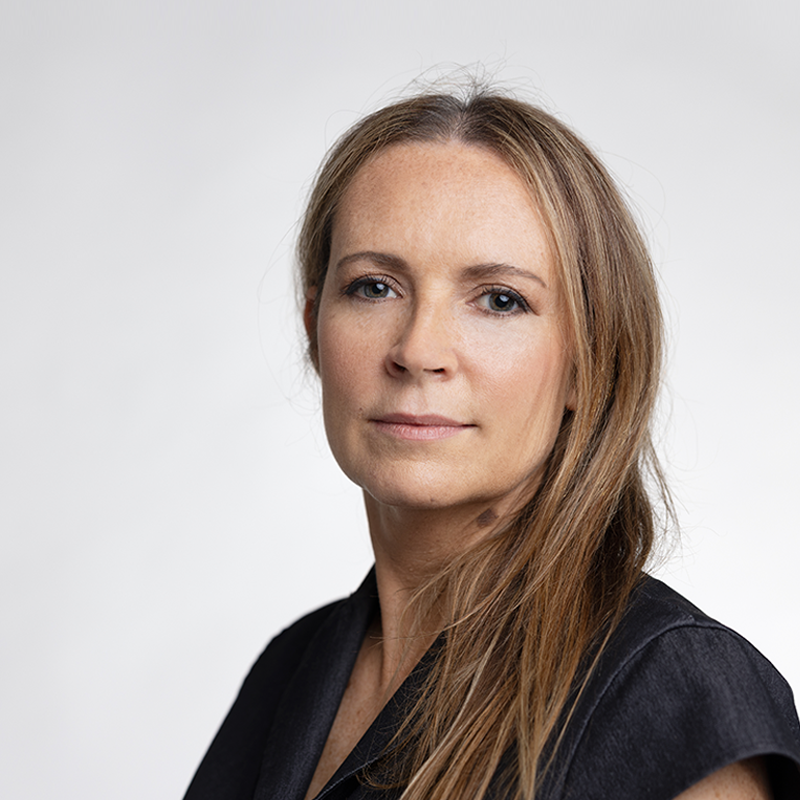
Caroline O’Donnell, Associate Professor and Chair, Architecture
Caroline O’Donnell is the Edgar A. Tafel Professor of Architecture and Chair of the Department of Architecture at Cornell University. Her research and teaching focus on ecological and contextual design, and on nonlinear materiality. She is a licensed architect and sole principal of CODA, and winner of MoMA/PS1’s Young Architects Program in 2013 with the project Party Wall, which used skateboard offcuts and leftover steel. She was the editor of the Cornell Journal of Architecture issues 8–10 and founding editor of Pidgin magazine. Her first book, Niche Tactics: Generative Relationships between Architecture and Site, was published by Routledge in April 2015.
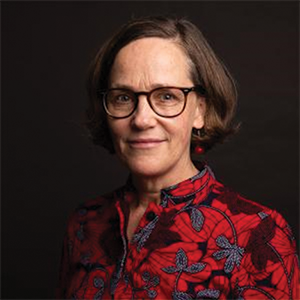
Sophie Oldfield, Professor and Chair, City and Regional Planning
Sophie Oldfield is Chair of the Department of City and Regional Planning at Cornell University and an internationally recognized urban and human geographer focused on cities in the Global South. From 2016 to 2021, she held the University of Basel–University of Cape Town Professorship in Urban Studies, based at UCT’s African Centre for Cities. Her work is grounded in empirical and epistemological questions central to urban theory and engages debates on informality, planning, governance, and social movements in African cities. She has a track record of excellence in pedagogy and collaborative research practice, challenging how academics work in and between “university” and “community.”
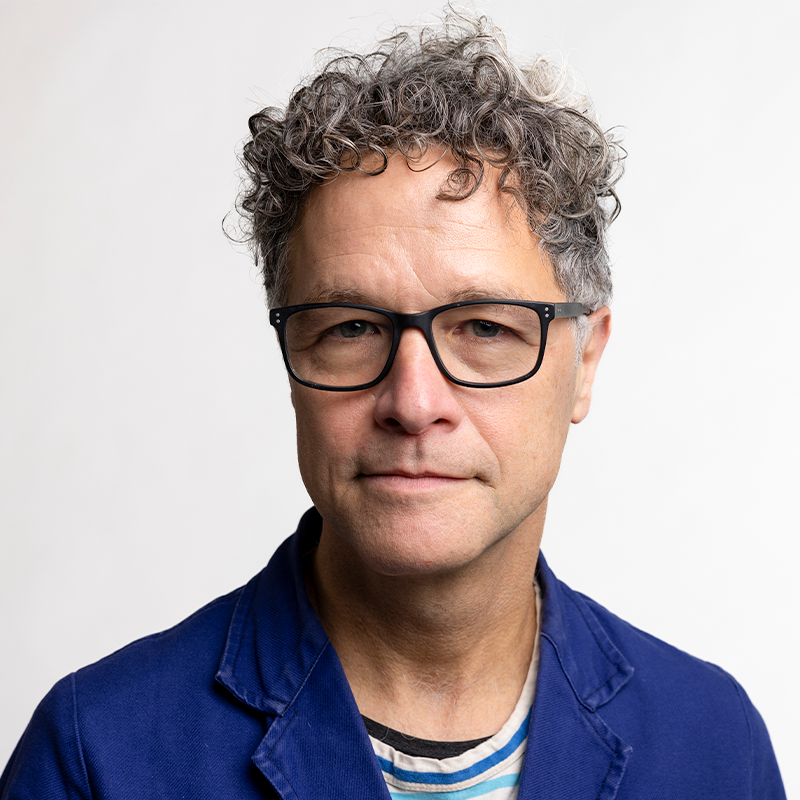
Paul Ramírez Jonas, Professor and Chair, Art
Paul Ramírez Jonas is Chair of the Department of Art at Cornell University and a Brooklyn-based artist and educator. His work has been exhibited extensively, both in the United States and around the world. His work ranges from large-scale public installation and monumental sculpture to intimate performance, video, and drawing. Sensitive to the processes of globalization, he reveals its simultaneous tendencies towards interdependence and exclusion. His public art project Key to the City — which he has explored on small and large scales for two decades, most notably in 2010 in New York City, and most recently in Birmingham, U.K. — gives ordinary people keys to usually inaccessible spaces in cities.
Johnny Miller Photo Exhibit
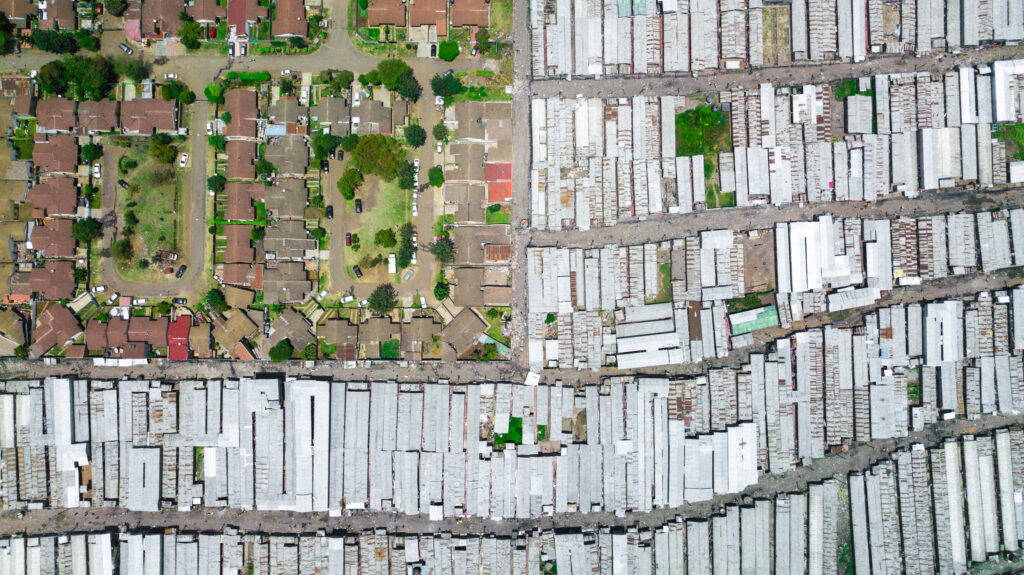
Unequal Scenes uses a drone to illustrate inequality across the world through photography. The scars within our urban fabric, which are so apparent from above, can provoke a sense of surprise but also reveal our complicity in systematic disenfranchisement.
Through this ongoing project, Johnny Miller has photographed the most egregious examples of wealth inequality in 11 countries — in both the Global South and the Global North — highlighting the architecture and urban planning that entrenches and reinforces it. It is shocking to see tiny shacks hemmed in by the fences, roads, and parks of the wealthiest few, but it is the very scale and unerring regularity across geographic regions which is most pernicious: the systemic and intentional nature of inequality. Make no mistake, this is not organic; this is planned disenfranchisement.
Sixteen of his images will be on display in the Milstein Hall Dome throughout the symposium.
About

Johnny Miller
Johnny Miller (b. 1981) is a photographer interested in exploring inequality, architecture, and urban issues through his work. He helped pioneer “drone journalism” in Africa with his project Unequal Scenes, and continues to explore underserved narratives at the intersection of technology and traditional storytelling techniques. Miller is a Senior Atlantic Fellow for Social and Economic Equity at the London School of Economics and a Senior Fellow at Code For Africa.
Conversation with the Artist
“In terms of my vision of what this project is all about, [it is] not portraying inequality as an absolute; it is a policy choice. I think when you see people moving to a place, you start to understand that these things are dynamic, they change over time, and that there are factors at play that can be reversed or modified.” – Johnny Miller
How did you get the idea for Unequal Scenes?
I began the Unequal Scenes project in South Africa in 2016. I was a former student at the University of Cape Town and I had studied the apartheid city — the way that the urban environment had been laid out to segregate and separate different racial groups. This was very interesting to me — not only in the divisions and how they looked, but in the way we all operated within the city to accommodate these divisions and how people (including myself) could find it so easy to live in a city that was so divided.
Consumer drone technology was sort of in its early stages at the time and not many people were focusing on social issues. So, one day I took my drone and flew over a township (Masiphumelele) that was located right next to a pretty wealthy gated estate, with big fancy houses and manicured lawns, etc. The photo turned out well, so I put it on Facebook — at the time I only had 200 people or so following me — and it went viral overnight. I named the project Unequal Scenes, and it pretty much exploded from there.
How can photographers (artists), urban planners, and decision makers work together?
Urban planners are artists. I see the “art” of city-making as a beautifully complex and choreographed dance, and by embracing a human-scale, informed artistic process we can create cities that are just as multifaceted and exciting as the residents who live within them. I think if visual artists (like photographers) can play a role in encouraging creativity within an organization, whether with their work or their artistic practice, we should raise that up. But I’m not sure it’s necessary…I think that each of us has the capacity to be creative, even the most stodgy, boring person, because that person was once a child, a child who played and socialized truthfully and authentically, and we can each tap back into that with the right self-practice.
But one area where I think photographers (or other creatives) can play an important role is interpreting the human experience, especially the “non-normative” parts of society, and communicating that to planners in such a way as to give them all the information necessary in order to creatively meet the needs of the city population as a whole. Artists have an incredibly liberating role to play in society, which is to interpret and reproduce culture, and city planners, politicians, or anyone tasked with generating development for the general good of the population needs to recognize the role art plays in defining “who we are.”
Lastly, I believe that urban planners play a major role in fostering art within cities. There are well-documented trends in U.S. cities away from attributes that encourage art and artists (open spaces, free education, social services, income plurality), and I believe pushing back against corporate interests, gentrification, inequality, etc. is important in preserving that very important layer of society which artists constitute.

